Revitalizing Degraded Soils for Sustainable Productivity: The Experience of Taguba Meskel Kebele with Regenerative Agriculture
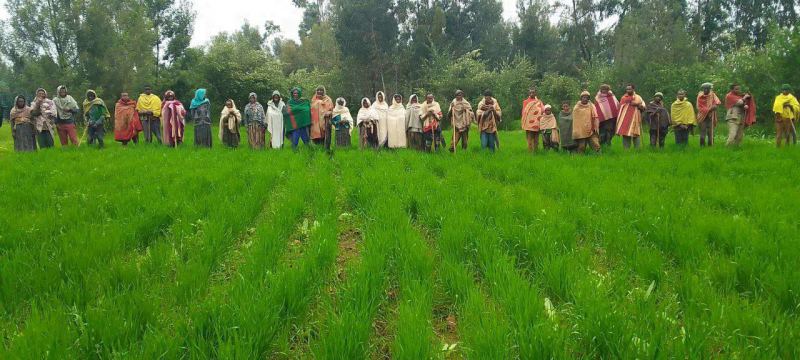
In Ethiopia, unsustainable farming practices have led to physical, chemical and biological degradation of cultivated fields. This has resulted in poor soil health and declining agricultural productivity. One striking example is the demonstration land at the Farmers’ Training Center (FTC) in Taguba Meskel Kebele, Meket District. Intended as a learning site to showcase improved agricultural practices, the land had become severely degraded. The soil washighly acidic, low in organic matter,, had poor water-holding capacity, and ultimately, produced stunted crops with low grain and biomass yields.
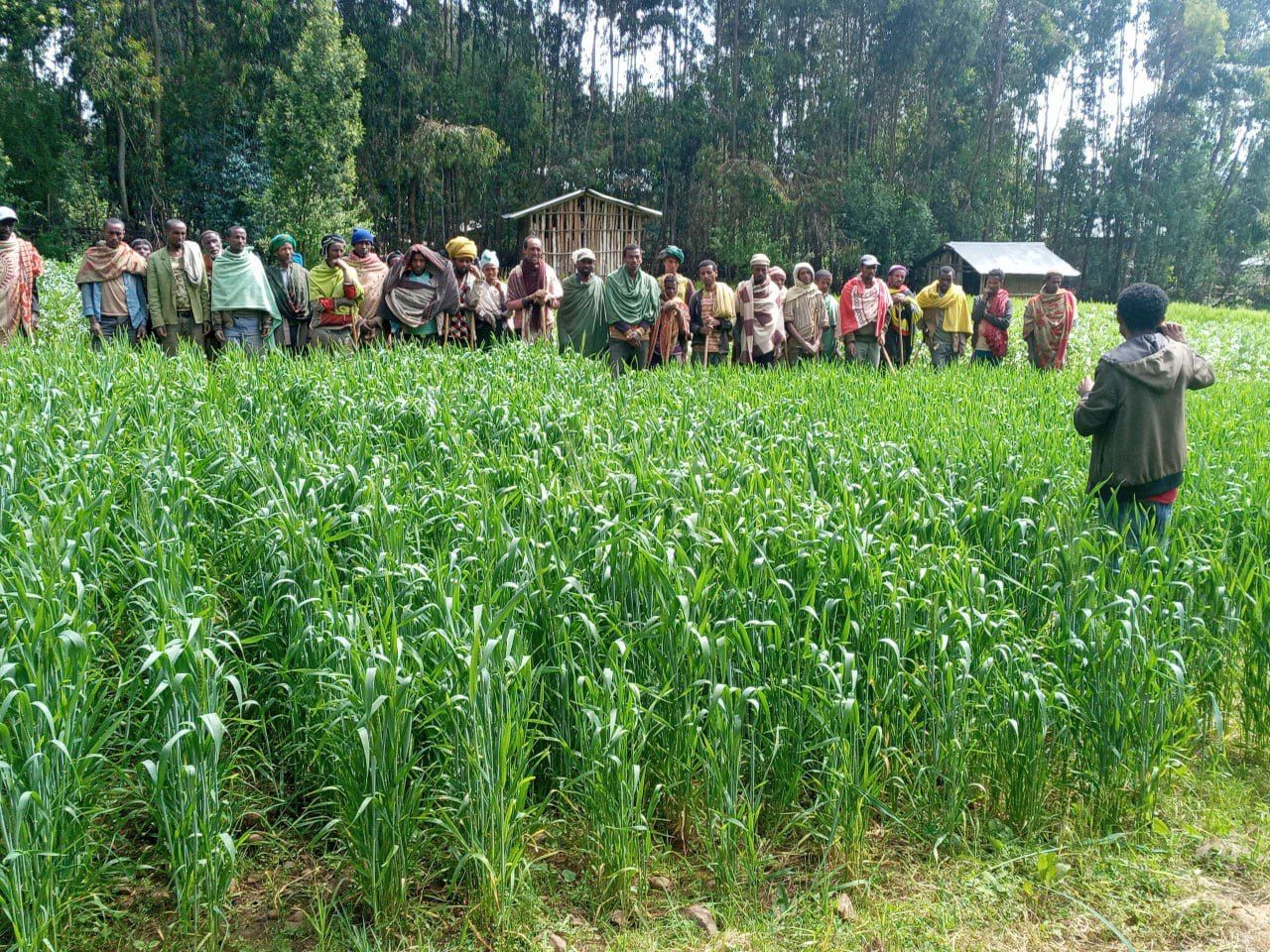 Farmers while visiting CVPs on a field day organized at Taguba Meskel
Farmers while visiting CVPs on a field day organized at Taguba MeskelAccording to local Extension Agents (EAs), the degradation stemmed from several unsustainable practices, including lack of soil and conservations, monocropping of cereals, continuous use of acid forming fertilizers, poor level of nutrient recycling due to no or limited use of organic fertilizers like compost, manure, and complete removal of crop residues.
In 2022, a team from the Sasakawa Africa Association (SAA) visited the site and witnessed the level of land degradation as manifested by poor crop performance. The team recommended urgent intervention to restore the soil fertility, and productivity of the demonstration plots. The District Agriculture Office accepted the recommendation and began implementing regenerative farming interventions focused on Integrated Soil Fertility Management (ISFM) with the support of SAA.
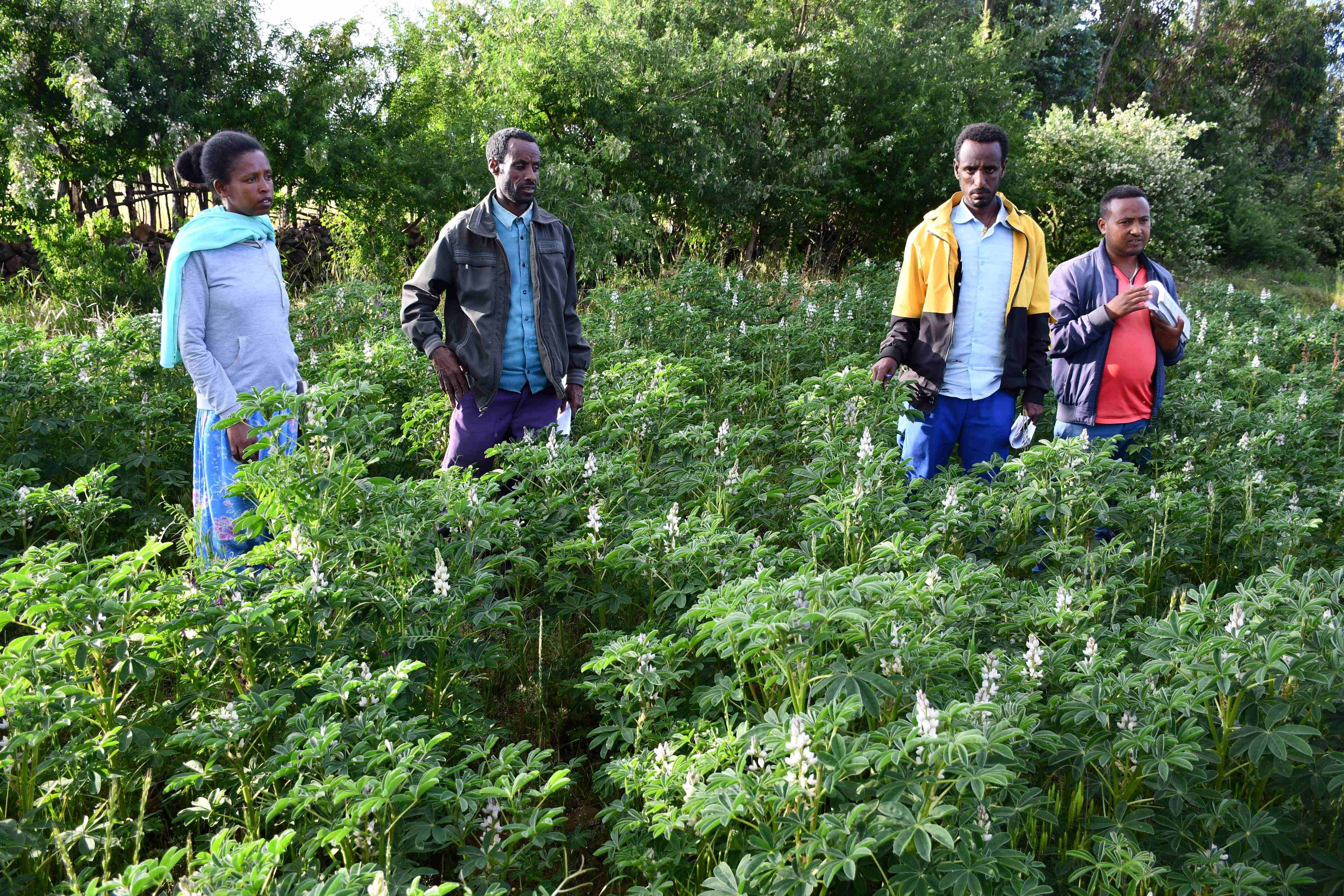 EAs standing in the lupine seed farm at the FTC in 2022
EAs standing in the lupine seed farm at the FTC in 2022As part of the restoration plan, part of the land was fallowed during the 2023 cropping season, while another section was planted with lupin (Lupinus albus), a nitrogen fixing crop, to biologically enrich the soil and produce seeds for future green manure use. In 2024, a suite of regenerative agricultural practices was introduced--including minimum tillage, green manuring with lupin, liming, crop diversification (with theinclusion of pulses), compost application, and use of mineral fertilizers at recommended rates. Lupin was incorporated into the soil approximately two weeksbefore planting the main crop. These interventions led to significant improvements in both grain productivity and biomass yield during the 2024 cropping season.

In the 2022, average yields on Community Variety Plots (CVPs) were modestas shown in Table-1 and Figure-1. For instance, for wheat, it was less than 2,000 kg/ha, barley at 1,814.2 kg/ha, faba bean at 845 kg/ha, and field pea at 1,149 kg/ha. Compared to 2022, the adoption of the RA practices in 2024 increased yield wheat by 108.5%, barley by 77.77%, faba bean by 104.14%, and field pea by 13.14%. The combined use of fallowing, organic and mineral fertilizers effectively restored soil fertility and productivity.

To share these outcomes, three field days were organized for local farmers, who observed the yield differences firsthand. Participating farmers underlined, “We have been theoretically learning about SWCs, soil fertility practices, natural resources and other initiatives. However, SAA practically showed us how to transform our farmland through regenerative agriculture—with this, we can say that seeing is believing.” Many expressed interest in applying the RA practices on their own plots. However, some noted that their limited land size makes fallowing difficult, and instead showed keen interest in using lupin as green manure.
Local extension staff emphasized their willingness to strengthen their collaboration with SAA and other partners to scale the RA interventions. They highlighted the need to improve farmers’ access to important inputs such as seed, and to continue building farmers’ capacity to adopt RA practices on their own plots.
The experience from Taguba Meskel Kebele illustrates how even severely degraded lands can be revitalized through regenerative agriculture. With continued support, input access, and farmer engagement, these practices can help build resilient, productive farming systems across Ethiopia. SAA will continue to support community-driven RA initiatives to ensure resilient agroecosystems, improved farmer livelihoods, and the sustainable transformation of Ethiopia's farming landscapes.
SAA Publications
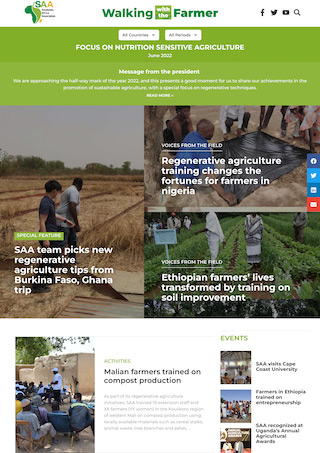
E-newsletter
"Walking with the Farmer"
SAA publishes a bimonthly e-newsletter reporting on SAA activities.
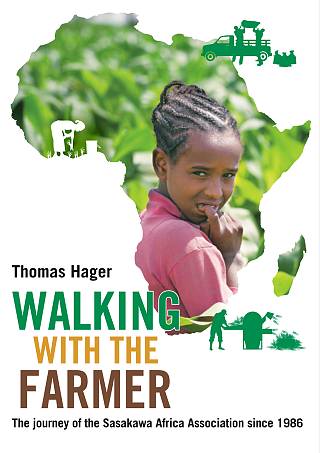
SAA history book
"Walking with the Farmer: The journey of the Sasakawa Africa Assoication since 1986"
This book chronicles the history of SAA from its inception to the present.
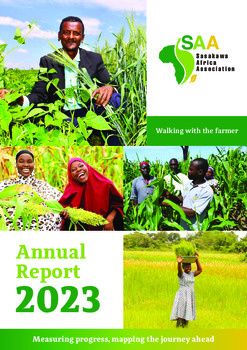
Annual Report
Annual Report FY2023
Annual Report FY2023 is available here.




